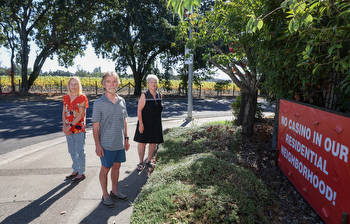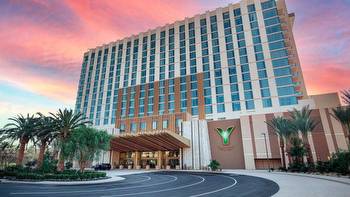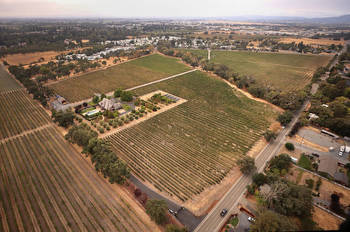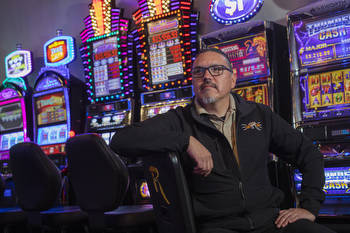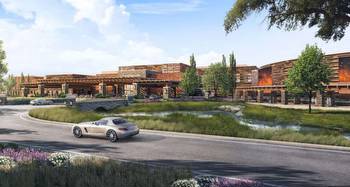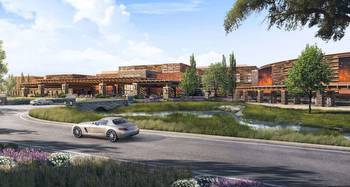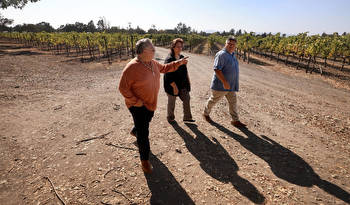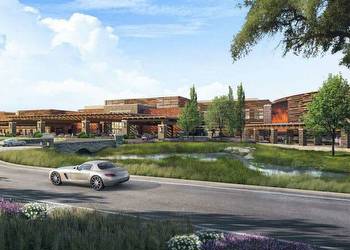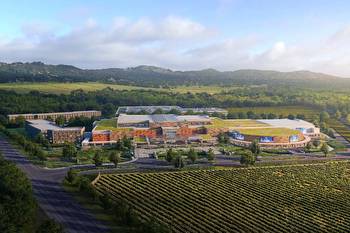Graton Resort and Casino could double its slot machines under new California gaming compact

The tribe that owns Graton Resort and Casino, the Bay Area’s largest gaming destination, has reached a new compact with Gov. Gavin Newsom’s office that will allow it to to double its number of slot machines, advancing a planned expansion first announced last year.
The new, 200-page agreement between the state and the Federated Indians of Graton Rancheria replaces a compact signed in 2012. It would allow the number of authorized slot machines at the casino to go from 3,000 to 6,000.
The deal comes as the tribe is pursuing plans to enlarge not only its gaming floor but its hotel space outside Rohnert Park, positioning itself as an even more dominant player in the local hospitality market and California’s $8 billion annual tribal gaming industry.
The gaming floor expansion could give the facility the second largest slot floor in all of California; only Yaamava’ Resort & Casino in Highland, owned and operated by the San Manuel Band of Mission Indians, has more, with 7,000 slot machines.
Graton’s new compact also increases the amount of money the rancheria pays into the Revenue Sharing Trust Fund, an allocation that benefits nongaming tribes, according to a Friday news release from the tribe.
That quarterly payment would go from $2 million to $2.75 million if the tribe takes full advantage of its slot machine cap, according to the deal.
“We’re happy to improve our compact with the State of California and continue to provide needed community funds for the City of Rohnert Park, Sonoma County and our state,” Greg Sarris, tribal chairman of the Federated Indians of Graton Rancheria, said in the release.
“This compact allows the tribe to grow as a self-sustaining sovereign nation and continue to support our mission of social justice and environmental stewardship.”
Sarris declined further comment.
Both Rohnert Park and Sonoma County receive millions of dollars annually from the tribe to offset impacts on public services. Neither local government appeared to have been highly involved in the negotiations.
Under the new compact, the county and Rohnert Park would receive 2% of net wins — total amount wagered on slot machines minus total payouts, according to Jennifer Klein, Sonoma County’s chief deputy county counsel.
Klein said the county does not know what it stands to receive in dollar amounts because it doesn’t yet know what the tribe’s net revenue will amount to.
Also, she noted in an email, the “compact is not effective until it is approved by the U.S. Secretary of the Interior.”
Don Schwartz, assistant city manager for Rohnert Park, said he hadn’t had a chance to fully review the new compact. But he emphasized a strong working relationship between the city and the tribe, and noted the “considerable funding” Graton Rancheria has provided for Rohnert Park schools and services.
“They have been very good neighbors,” Schwartz said. “And we have every reason to look forward to that continuing.”
Rohnert Park doesn’t have a lot of involvement in the negotiation of gaming pacts, Schwartz acknowledged, but he said the city was in no way surprised by the new agreement.
The city has established an ad hoc committee of the Rohnert Park City Council to work closely with the tribe, he added, led by Mayor Samantha Rodriguez and Councilmember Jackie Elward.
Graton Resort and Casino opened in 2013 on the tribe’s 254-acre reservation off Wilfred Avenue outside Rohnert Park. Graton Rancheria last year announced plans for a major expansion of its gaming floor and a second hotel tower.
Plans filed with the city of Rohnert Park call for enlarging the casino floor by 50% and adding a five-story, 221-room hotel tower.
The $825 million casino opened with 3,000 slot machines, 144 blackjack, poker and baccarat tables, and several restaurants to cater to visitors around the clock. A 200-room hotel, convention space and ballroom opened in 2016.
The gaming resort is one of Sonoma County’s largest private employers, with more than 2,000 employees, and its workforce is likely to swell with the expansion.
As the compact moves forward, Klein said, the county will be keeping an eye on several other elements, including: allowing the county access to the gaming facility for public health inspections, state liquor license requirements, making sure adequate fire suppression service is available and provisions governing payments to non-gaming and limited gaming tribes.
The compact does not mention mitigation of environmental impacts or current agreements between the county and the tribe — something county officials will also be tracking, Klein said.
Graton is one of Sonoma County’s two tribal casinos. The county’s first tribal gaming operation, River Rock Casino, opened in 2002 near Geyserville.
Its owners, the Dry Creek Rancheria Band of Pomo Indians, last week saw the Sonoma County Board of Supervisors approve a new agreement that would pave the way for a resort-style destination on its existing gaming site, with up to 1,500 slots, a nearly 300-room hotel and other amenities.
Another Pomo tribe, the Koi Nation, is seeking to develop a gaming resort outside Windsor, a move opposed by five Sonoma County-based tribes, as well as the Board of Supervisors.









